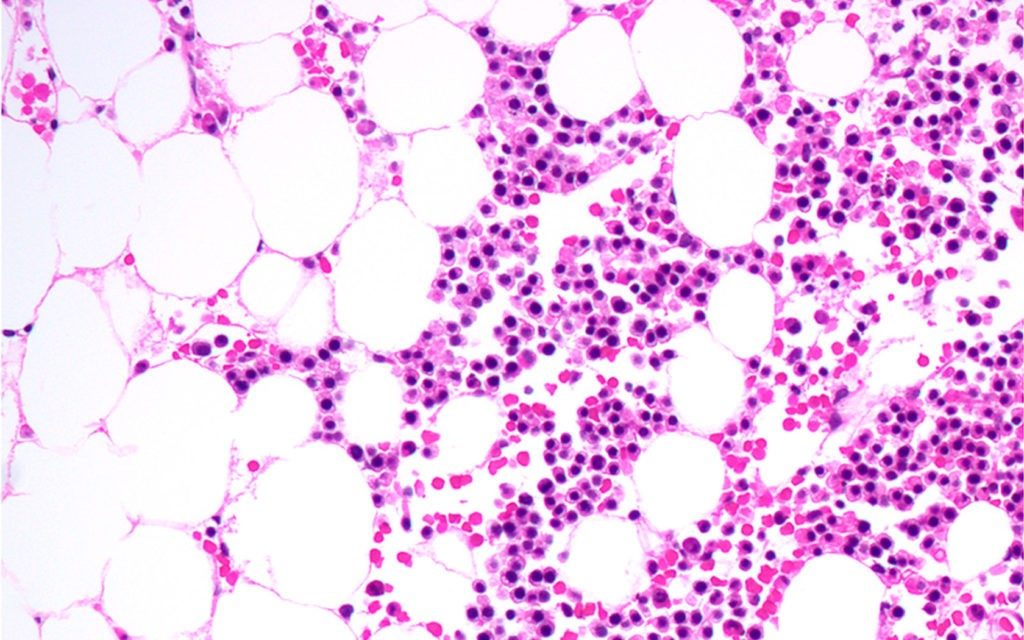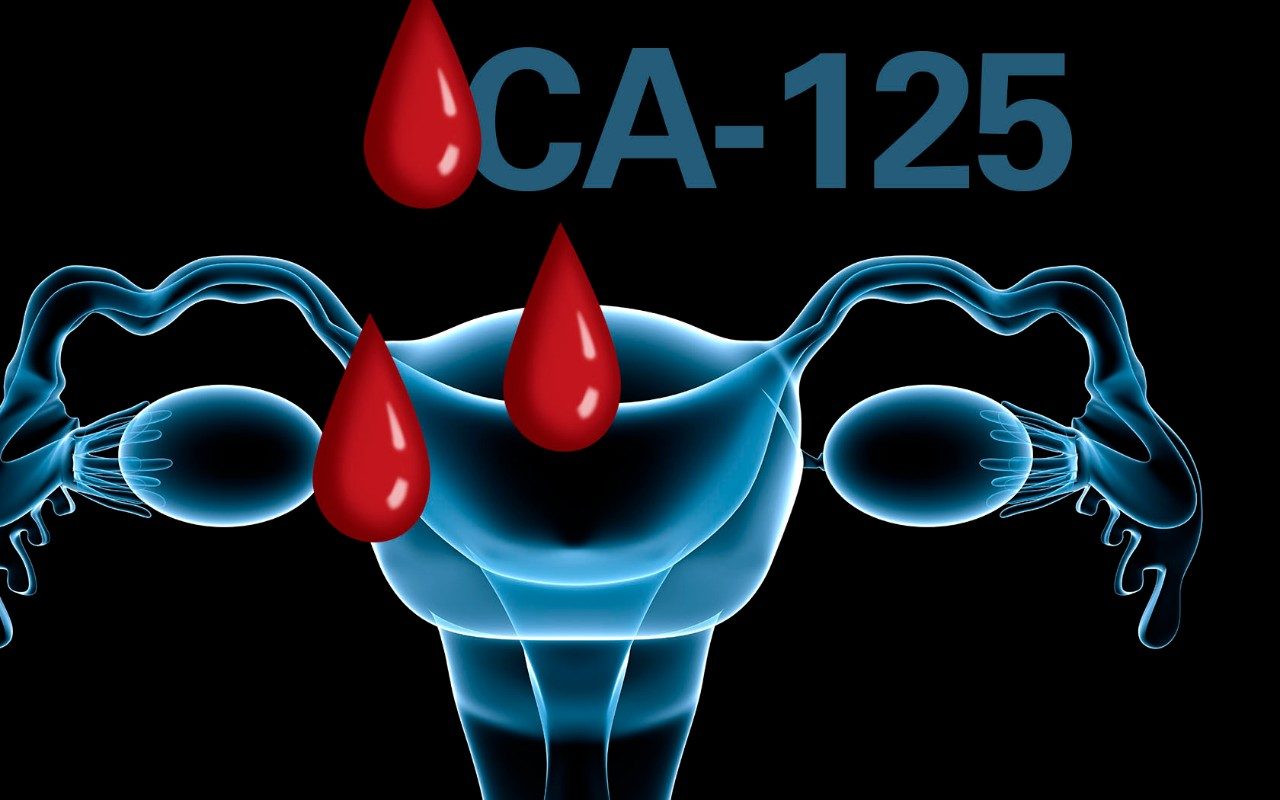Combination immunotherapy shows promise for treating bladder cancer
Combination immunotherapy is producing response rates ranging from 26 to 38% among patients with metastatic bladder cancer in a clinical trial led by MD Anderson Cancer Center.
“Until the first, recent approval of immune checkpoint therapy, patients with bladder cancer have not had new treatment options for over 30 years. We’re quickly moving from immune checkpoint monotherapy to immune checkpoint combination therapies to improve...

What we can learn from revolutionary melanoma treatment
The largest analysis of metastatic melanoma patients who received a targeted therapy combination shows the treatment provides long-term survival...
Molecular testing used to find the best clinical trial for triple negative breast cancer patients
A new trial underway at MD Anderson may lead to new therapies for triple negative breast cancer.
Fifteen to 20% of breast cancers...
Predicting if cancer patients will develop highly fatal leukemia
Patients who’ve been successfully treated for breast, colon and other cancers can go on to develop an often-fatal form of leukemia, sometimes years after completion of treatment, due to a genetic mutation leading to secondary malignancies known as therapy-related myeloid neoplasms (t-MNs).
A study conducted by researchers at MD Anderson Cancer Center revealed pre-leukemic mutations, called clonal hematopoiesis, may predict...

Most salons are complying with tanning bed ban — an important step in cancer prevention
When female employees of a mystery shopping firm called posing as 17-year-olds interested in tanning, 81% of indoor tanning facilities complied...
MD Anderson is bringing greater access to advanced cancer care in San Antonio
The University of Texas Health Science Center at San Antonio and The University of Texas MD Anderson Cancer Center are announcing...
Screening program helps save an uninsured man’s life
Three years ago, Stephen Cadmus faced a dilemma. He needed to see a doctor, but he had no health insurance.
To get the medical...
After a stem cell transplant, professor returns to the classroom
Chemistry professor Bindu Chakravarty rarely missed a day teaching at Houston Community College. So when she called in sick one morning, it...
Testing a drug that starves cancer cells to death
The first clinical study of a new drug designed to kill cancer cells by depriving them of the nutrients they need to survive is underway at...
Patients go from hepatitis C to hepatitis free
Jan Barbo likely got hepatitis C from a blood transfusion. Almost 50 years ago, she suffered an ectopic pregnancy when a fertilized egg attached...
Clinical trial tests natural killer cells on pediatric brain tumors
The most common malignant brain tumors in children, medulloblastomas, are usually incurable if they recur. Even with surgery, chemotherapy...
New drug combination boosts survival for some breast cancer patients
Two drugs used together — ribociclib and letrozole, improve progression-free survival of post-menopausal women diagnosed with hormone receptor-positive...
A plan to get Medicaid enrollees more help to quit smoking
The American Lung Association and MD Anderson Cancer Center have announced a new partnership aimed at increasing coverage and access...
Costs of breast cancer chemotherapy regimens vary widely
Costs associated with different breast cancer chemotherapy regimens can vary significantly, regardless of effectiveness, a new MD Anderson...
Naturally occurring antibiotic may battle some brain cancers
Researchers at MD Anderson have discovered a potentially new therapeutic approach for certain brain cancers in which the enzyme enolase (ENO1...
Genetic variants tied to head and neck cancer pain
A genome-wide association study has tied common genetic variants to pre-treatment pain, a finding with potential implications for precision...
Combination therapy shows promise for chronic myeloid leukemia
A study in mice combining two inhibitor drugs for treatment of chronic myeloid leukemia (CML) has revealed potential for stopping the disease...
Reducing the toll of cervical cancer around the world
Cervical cancer is the fourth most common cancer among women worldwide and was responsible for approximately 266,000 deaths in 2012, according...
Study shows mastectomy plus reconstruction is riskiest, costliest treatment option
Mastectomy plus reconstruction for patients with early-stage breast cancer is significantly riskier and costlier than other less-invasive...
Drug shrinks tumors in clinical trial patients with BRCA-positive breast cancer
In a pilot study of 13 newly diagnosed, BRCA-positive breast cancer patients at MD Anderson, all had their tumors shrink significantly when...
How melanoma resists an immunotherapy drug
“Loss of interferon-gamma signaling caused by these mutations is the first clearly defined resistance pathway to ipilimumab found in tumor...
Inheriting a greater risk of cancer
Hereditary cancers are caused by genetic mutations passed down from parents to children. The National Cancer Institute estimates...
Doctors developing more screenings for cancers related to HPV
The human papillomavirus (HPV) is known to cause a variety of cancers, but screening guidelines and a reliable early-detection test exist...
HPV vaccination rates are rising, but more work remains
According to a recent report from the Centers for Disease Control and Prevention (CDC), adolescent vaccination rates for the human...
With the help of Pink Ribbon Red Ribbon, fighting cancer in Africa
A program designed to reduce cervical- and breast-cancer deaths among women in developing countries is celebrating its fifth anniversary this...
How lasers are attacking 'inoperable' brain and spine tumors
When Allison Easley awoke one morning with soreness under her right armpit, she thought she’d pulled a muscle. But the pain soon became worse...
APOLLO project aims to expose cancer’s evasive action
A study that indicates how advanced melanoma responds to an immunotherapy, published in Cancer Discovery, demonstrates a revolutionary...
MD Anderson receives $19.1 million in CPRIT awards
MD Anderson Cancer Center has been awarded $19.1 million in research grants in the most recent round of funding from the Cancer...
This discovery may increase effectiveness of immunotherapy
Two cellular pathways have been shown to play a role in regulating the immune-system protein PDL1, a finding that could lead to increased...
A new study sheds light on how tumors evolve
As with most cancers, triple-negative breast cancer (TNBC) cells have abnormal amounts of chromosomes or DNA copy number aberrations (CNAs...
MD Anderson once again ranked No. 1 cancer hospital
MD Anderson again has been ranked No. 1 for cancer care by U.S. News & World Report’s annual “Best Hospitals” rankings. Since the rankings...
Preventing bone loss in cancer patients
Chemotherapy, radiation, hormone therapy, various cancer drugs and even cancer itself can weaken patients’ bones, leading to cancer-related...
Researchers identify genetic cause of 15% of colorectal cancers
Up to 15% of colorectal cancers show a genetic mutation known as DNA mismatch repair deficiency, or dMMR. Until now, little has been known...
Protein inhibits prostate cancer metastasis
Reported online in the July 28 issue of Molecular Cell, a study conducted at MD Anderson has shown that a protein called ZMYND8 blocks expression...
After stem-cell transplant, re-vaccination is needed
Patients diagnosed with blood-related cancers such as leukemia, lymphoma and multiple myeloma often undergo what is called a hematopoietic...
Addressing higher smoking rates in the LGBT community
Tobacco use has significantly declined during the past five decades since the release of the U.S. Surgeon General’s Report on Smoking &...
Colorectal cancer tumors are categorized to better target treatment
Researchers with MD Anderson’s Colorectal Cancer Moon Shot are sharpening the focus of a genetic tool designed to classify colorectal cancer...
New drug helps 'bridge' leukemia patients to curative treatment
In a randomized Phase III study of the drug inotuzumab ozogamicin, a statistically significant percentage of patients with acute lymphoblastic...
Shorter radiation course recommended for early-stage breast cancer patients
Early-stage breast cancer patients receiving a shorter course of whole-breast radiation with higher radiation doses reported equivalent cosmetic...
Exploring proton therapy's effectiveness on the most common form of lung cancer
Proton therapy can deliver a higher radiation dose to lung tumors and a lower dose to healthy tissue compared to standard radiation therapy...
Novel gene-hunting method finds new culprit in pancreatic cancer
Using an innovative approach to identify a cancer’s genetic vulnerabilities by more swiftly analyzing human tumors transplanted into mice,...
Lessons teach sun safety to preschoolers, first-graders
This summer, many preschoolers across Texas are safely enjoying their vacation time outdoors thanks to Ray and the Sunbeatables™, a sun-safety...
Enzyme could be key to stopping breast cancer’s spread
A mitogen-activated protein kinase (MAP) known as p38 appears to show promise for halting breast cancer metastasis, and may point to the potential...
Immunotherapy combination helps patients with resistant melanoma
Separate immunotherapies work well together, pumping up the impact of immune system attack on tumors, an unprecedented clinical trial shows...
Advances in gynecologic cancer treatments presented at ASCO
Advances that could change gynecologic cancer standard–of-care treatments are the centerpiece of key studies were presented by researchers...
Cost of chemo for breast cancer varies widely
Costs associated with different breast cancer chemotherapy regimens can vary significantly, regardless of effectiveness, according to new...
Should treatment choices be based on gender?
It is well known that men and women differ in terms of cancer susceptibility, survival and mortality, but exactly why this occurs at a molecular...
The dream team vs. rare heart tumors
When Gene Duncan visited his family doctor for a respiratory infection, little did he realize he’d be diagnosed with bronchitis — and something...
Sights set on first targeted therapy for triple-negative breast cancer
An MD Anderson study is seeking new drugs to combat triple-negative breast cancer, an aggressive form of the disease that doesn’t rely on...
Immunotherapy drug helps advanced bladder cancer patients
The immune checkpoint blockade drug nivolumab reduced tumor burden in 24.4 percent of patients with metastatic bladder cancer, regardless...
Extending lung cancer patients’ survival
Lung cancer patients whose cancer has spread to three or fewer sites may benefit from aggressive surgery or radiation after completing standard...
An immunotherapy drug to bolster a T cell surge
Patients in a first-of-its-kind clinical trial will receive a vastly expanded dose of their own T cells — white blood cells that are the specialized...
Gene therapy for nerve pain
The 90 percent of cancer patients who experience pain due to nerve damage caused by tumors, surgery, chemotherapy or radiation may someday...
Obesity may affect kidney cancer recurrence
Receptors for leptin, a protein hormone, may be associated with tumor recurrence in patients with renal cell carcinoma (RCC), providing further...
Sabin gift encourages research that tests the limits, delivers big impact
Eight of MD Anderson Cancer Center's top young researchers have been named Andrew Sabin Family Fellows and will receive $100,000 over two...
Detecting DNA mutations in single cancer cells
Researchers at MD Anderson Cancer Center have announced a new method for detecting DNA mutations in a single cancer cell versus current technology...
Affordable Care Act is boosting prevention, but more work is needed
The Affordable Care Act (ACA) was signed into law in 2010 to improve access to affordable health coverage for Americans, and a major focus...
Drug shows promise for patients with certain gene fusions
The drug LOXO-101 appears to significantly reduce tumors in patients with varied types of genetically defined cancer, according to a new MD...
Applauding FDA regulations for all tobacco products
MD Anderson Cancer Center fully supports new rules recently issued by the Food and Drug Administration (FDA) to extend federal regulatory...
Hep C linked to head and neck cancers
Long associated with liver cancer and non-Hodgkin’s lymphoma, the hepatitis C virus (HCV) for the first time has been associated with certain...
Aggressive anal cancer responds to immunotherapy drug
Researchers have reported results of the first-ever phase II clinical trial results for treatment with the immunotherapy drug nivolumab on...
Misunderstood gene thwarts tumors
A long non-coding RNA (lncRNA) called NBR2, once considered to be a “junk” gene, may very well play a significant role in tumor development...
Eating habits may lead to lung cancer
Consuming a diet with a high glycemic index, a classification of how rapidly carbohydrates elevate blood sugar levels, was independently associated...
Colon polyp surgery not always necessary
Using the latest advances in endoscopic resection techniques, more than 75 percent of patients with complex colon polyps could avoid surgery...
Searching for those at high risk for pancreatic cancer
A new clinic to identify and monitor those at high risk for developing pancreatic cancer continues to expand after opening last year....
MD Anderson experts named to National Cancer Moonshot advisory panel
Two cancer experts at The University of Texas MD Anderson Cancer Center have been named to a blue ribbon panel to advise the National Cancer...
A new staging system for breast cancer
A new breast cancer staging system developed by researchers at MD Anderson Cancer Center finds that incorporating tumor biology is a critical...
Implantable devices track cardiac events in cancer patients
Cancer survivors are more likely to die from heart disease than cancer; therefore, patients must be closely monitored for heart problems during...
MD Anderson experts join new Parker Institute for Cancer Immunotherapy
Cancer immunotherapy leaders at MD Anderson Cancer Center will work with experts at five other cancer centers in a new alliance funded by...
Discovery could be a game-changer for the staging of an HPV-related cancer
MD Anderson researchers are proposing a new model to allow doctors to predict outcomes more accurately for patients with oropharyngeal (middle...
Aggressive prostate cancer's origins unmasked
New findings about where and how aggressive forms of prostate cancer potentially begin may lead to new therapies for hard-to-treat and lethal...
Anti-cancer drug ONC201 shows potential for some blood cancers
ONC201, an anti-cancer drug that triggers cell death in various tumor types, may be effective in treating some blood cancers, including mantle...
Are genetic mutations more common than we thought?
Looking at data from a standard technology in a novel way, MD Anderson researchers have discovered that certain genetic aberrations are two...
Top names in cancer unite in call for ban on tanning beds
The nation’s premier cancer research group, oncology society and 20 other organizations recently released a statement calling for state and...
Cancer centers address HPV's public health threat
In response to low national vaccination rates for the human papillomavirus (HPV), The University of Texas MD Anderson Cancer Center has joined...
Study reveals 'inner workings' of most-common brain tumor
An international study has revealed new information about diffuse glioma, the most common type of tumor found in some 80% of adult brain cancer...
Study seeks best way to manage breast ‘pre-cancer’
Is the best way to treat an early precursor to breast cancer no treatment at all? That’s what MD Anderson researchers and allied institutions...
New surgical procedure targets cancerous lymph nodes
A new procedure developed by MD Anderson surgeons is helping doctors determine which lymph nodes in breast cancer patients are cancerous and...
How the moon shots are progressing
After extensive internal and external peer review, MD Anderson expanded its Moon Shots Program by adding six new moon shots to its focused...
Quitters never win? Sometimes they do
Loretta Preston kicked her cigarette addiction two years ago.
“Quitting wasn’t easy,” she says. “I’d smoked for 40 years.” Then, the...
World Cancer Day reflects the daily mission of MD Anderson
Feb. 4 is World Cancer Day, which was organized by the Union for International Cancer Control to raise awareness of the actions needed to...
Study sheds light on deadly form of breast cancer
In cancer, cell signaling pathways are the critical chain of events that can either quash or quicken disease progression.
A multi-institutional...
Mastectomy plus reconstruction equals rise in complication rates, costs
The 140,000 U.S. women diagnosed each year with early-stage breast cancer, when the tumor is still small and hasn’t spread, have a variety...
Catching and treating a deadly cancer using a blood test
Researchers at MD Anderson have found that pancreatic cancer tumors essentially spill their molecular secrets when they shed their complete...
Delaying chemo for breast cancer reduces overall survival
Breast cancer patients who delay chemotherapy more than 90 days after surgery are one-third more likely to die within five years, compared...
Depression shortens head and neck cancer survival time, increases recurrence
Depression significantly impacts five-year survival and recurrence in head and neck cancer patients, according to a new MD Anderson study....
Immune suppressor cells linked to prostate tumor growth
Immune suppressor cells called MDSCs (myeloid-derived suppressor cells) may be important in developing treatments for advanced prostate cancer...
Study links high sugar intake to increased breast cancer risk
High amounts of dietary sugar increased the risk that mice would develop breast cancer, and that it would spread to their lungs, MD Anderson...
Should we routinely screen for ovarian cancer?
The majority of women diagnosed with ovarian cancer face a difficult journey of repeated treatments that include aggressive surgeries and...


















































































